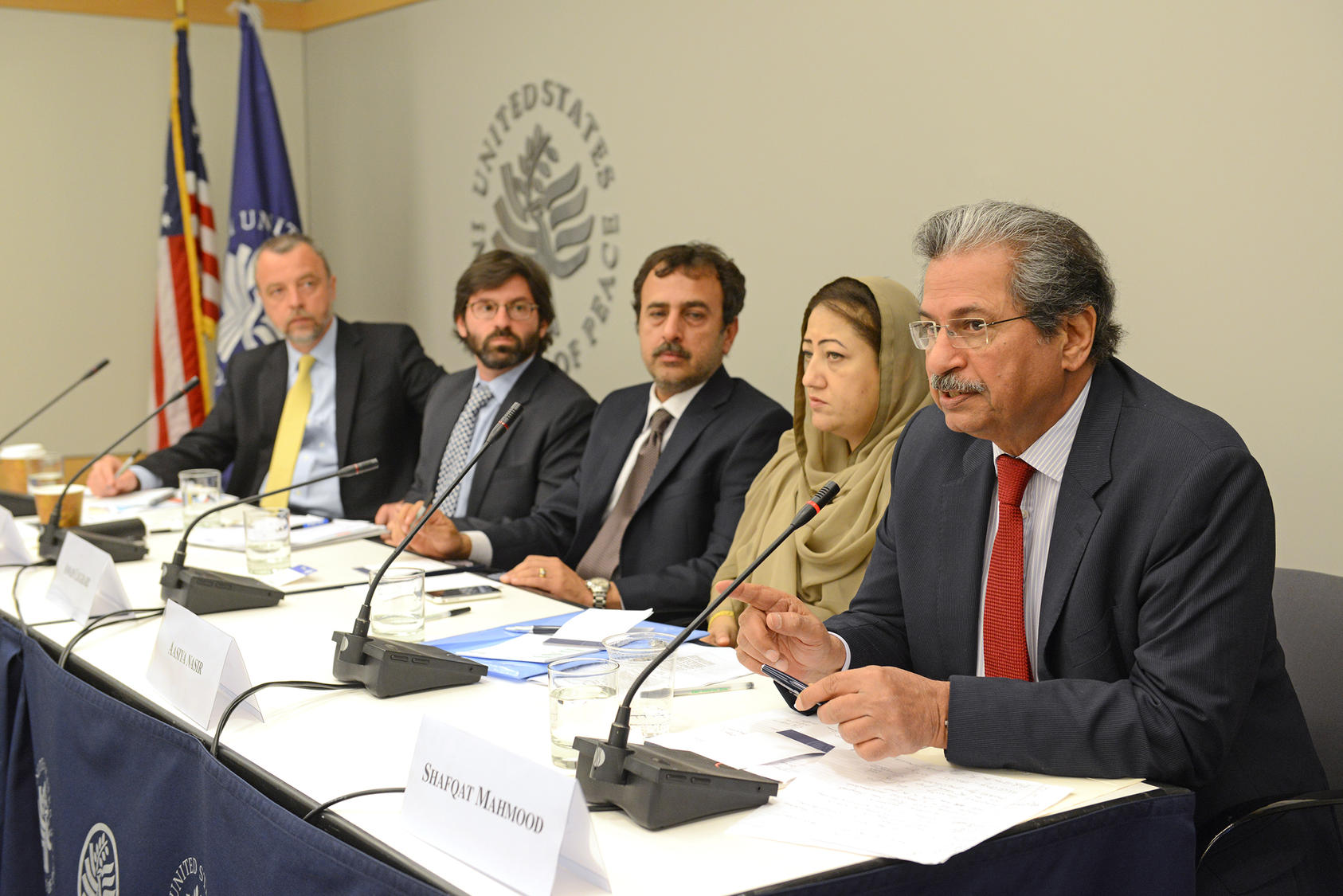Countering Pakistan’s Extremists: Can the National Assembly Take the Lead?
As Pakistan struggles to confront violent Islamist militant groups, can the country’s parliament take the steps needed? Pakistan’s government says it must urgently address the poor education, underemployment and alienation, particularly among youth, that is feeding violent extremism. Yet in a country ruled for nearly half of its history by its military, the National Assembly has often struggled to influence national policies. On April 17, Pakistani legislators visiting Washington met with their American counterparts and discussed their country’s challenges and the role that the National Assembly can play in meeting them.

The challenge of confronting violent extremism in Pakistan resonates beyond its borders. Pakistan’s evolution is critical to the international effort to stabilize Afghanistan. It has implications for India and China, and indeed across South Asia and the Middle East, where other countries face the same extremist problem.
This USIP panel discussion included three National Assembly members—both from the governing coalition of Prime Minister Nawaz Sharif and from opposition parties. They are members of a Pakistani delegation of legislators that will have met with members and staffers of Congress, and with other U.S. officials in the previous week. This legislative exchange program is sponsored by the U.S. Institute of Peace, the Washington-based non-profit group Convergence, and the Pakistan Institute of Legislative Development and Transparency. Continue the conversation on Twitter with #USIPPakistan.
Speakers
- Awais Leghari
Member of the National Assembly (Pakistan Muslim League-N, Dera Ghazi Khan) and Chairman of its Foreign Affairs Committee; Co-Chair of the US-Pakistan Legislator’s Forum Delegation - Shafqat Mahmood
Member of the National Assembly (Pakistan Tehrik-i-Insaf, Lahore) - Aasiya Nasir
Member of the National Assembly (Jamiat Ulema-e-Islam-F, Quetta) - Brian Joseph
Senior Director for Asia and Global Programs, National Endowment for Democracy



